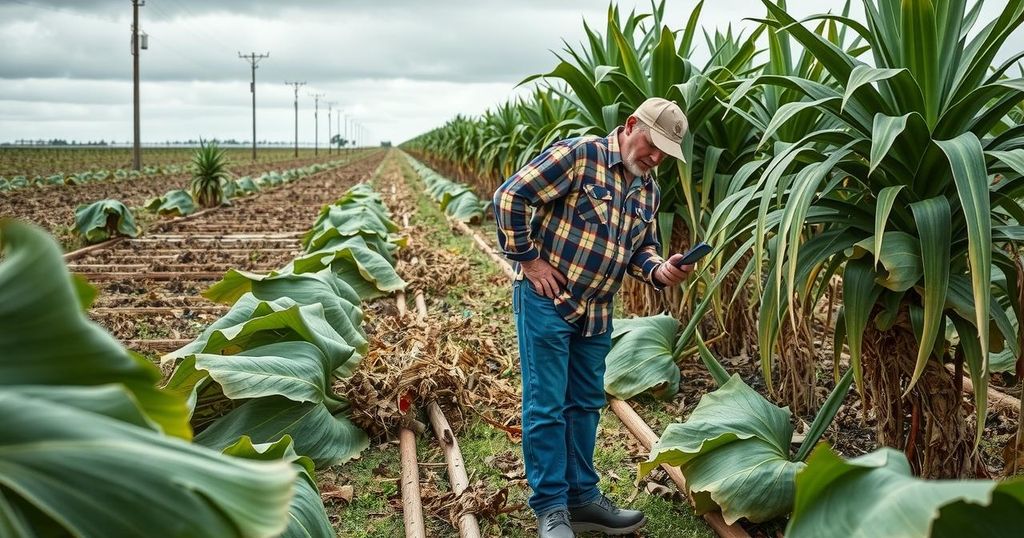Farmers Struggle to Recover from Hurricane Helene’s Devastation in the South

Farmers in the South, particularly in Georgia, continue to confront the severe impact of Hurricane Helene, which devastated crops and farm equipment, resulting in estimated losses exceeding $10 billion. Although emergency relief and aid measures are being implemented at both state and federal levels, many farmers are emotionally and financially drained from the extensive damage, with timelines for recovery remaining unpredictable.
In the aftermath of Hurricane Helene, which struck the South in late September, farmers such as Chris Hopkins in Lyons, Georgia, continue to face immense challenges more than two months later. The hurricane, which reached Category 4 strength before making landfall, caused significant damage to crops and equipment, leaving twisted machinery and uprooted trees across farming landscapes. Farmers are grappling with the emotional and financial toll of the disaster, as losses run into the billions across various states impacted by the storm. With estimates of over $10 billion in damages for agricultural entities from Florida to Virginia, the recovery for farmers remains slow and uncertain.
Hopkins reports a loss of nearly half of the cotton yield on his substantial 1,400-acre farm due to the storm’s timing. The unpredictable path of Helene resulted in widespread damage to other crops, including pecans and vegetables, and the destruction of poultry houses vital for regional economies. Economic assessments reveal staggering losses in the agricultural sector, with Georgia and North Carolina bearing the brunt of crop damages. Emergency relief measures are underway, including the diversion of funds by the Georgia government and a federal disaster aid bill freshly passed in Congress, aimed at supporting affected farmers. However, restrictions in state funding and significant individual losses highlight the difficulties farmers face in the ongoing recovery efforts.
Hurricane Helene, which made landfall in Florida in September 2018, resulted in unprecedented devastation across the southeastern United States, particularly affecting agricultural sectors. The hurricane, classified as a major Category 4 storm, caused direct damage to crops, farm equipment, and infrastructure, leading to emotional and financial repercussions for farmers. Following the storm, estimates indicated that the agricultural losses would exceed $10 billion, with substantial damage reported in several states, including Georgia, Florida, North Carolina, South Carolina, and Virginia. The response from federal and state governments included emergency aid measures and calls for swift action to support farmers in rebuilding their operations and recovering from the impact of the storm.
The lingering effects of Hurricane Helene have left farmers in the South facing monumental challenges as they navigate the aftermath of the destruction. With billions in agricultural losses and widespread damage across farms, recovery efforts are critical yet hampered by financial and logistical obstacles. While state and federal resources are being mobilized to assist with recovery, the timeline for returning to operational normalcy remains uncertain for many, like Chris Hopkins and Jeffrey Pridgen. The resilience of the farming community is being tested as they work toward rebuilding their livelihoods in the wake of the disaster.
Original Source: brookingsregister.com







